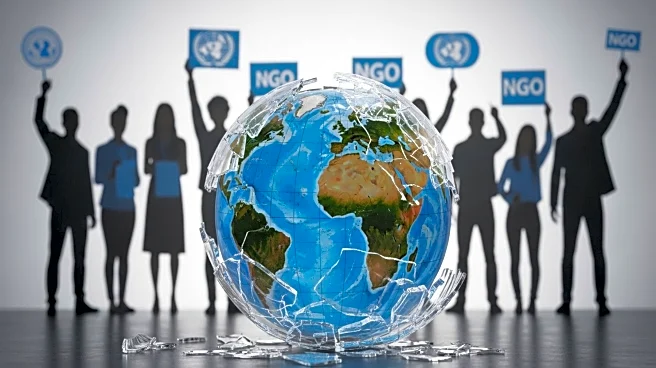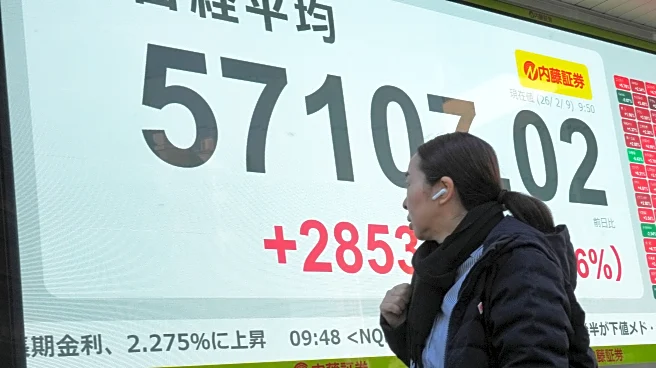What's Happening?
The UN's global plastics crisis advisory panel has highlighted that one-third of global plastic waste will not be properly managed by 2025. Recent UN-backed negotiations aimed at finalizing a global agreement to end plastic pollution have collapsed for the second time. The talks revealed a significant divide between nations advocating for stringent measures to reduce plastic production and those with petrochemical interests. NGOs are now pushing for reforms in the negotiation process, suggesting that a simple majority vote or more frequent meetings could lead to a stronger treaty.
Why It's Important?
The failure to reach a global plastics treaty has significant implications for the environment and business sectors. Without a treaty, plastic pollution continues to pose risks, leading to increased state regulation and litigation against companies. Businesses that proactively manage plastic risks can differentiate themselves and build resilience, while those that delay may face financial liabilities. The financial think-tank Planet Tracker has warned that plastics-related litigation costs could reach $20 billion in the U.S. by 2030, highlighting the urgent need for action.
What's Next?
NGOs are advocating for process reforms in future negotiations, including the possibility of a simple majority vote or more regular meetings. These changes could facilitate the creation of a stronger treaty. Companies are encouraged to measure, disclose, and reduce plastic risks to avoid future costs and liabilities. The ongoing divide between high-ambition nations and those with petrochemical interests suggests that reaching a consensus will require significant diplomatic efforts.












